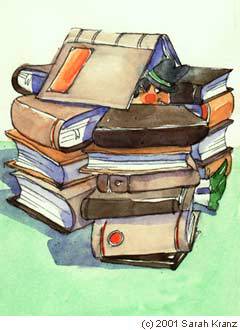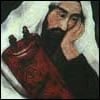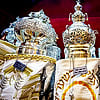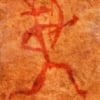Question:
Could you explain to me how Jacob could study Torah "in the tents" if Torah was given to Moses centuries later? And could you explain how Jacob could study the Torah in which he, too, is a character?
No rabbi so far has provided me a satisfactory explanation.
Answer:
This is discussed in many places in Talmud and Midrash. Not only Abraham, Isaac and Jacob, but also Noah and even Adam knew the Torah. Concerning Noah, the Torah itself writes clearly that G‑d told him to take onto his ark "of the animal which is ritually pure (tahor), seven, seven." Apparently, he was expected to know for himself that pigs are not ritually pure and cows are.
What was the Torah before it was given to us? The Torah is G‑d's wisdom, as He considers Himself, as He considers us and as He considers His world. It contains the wisdom with which He creates the world and manages it. Think of a concept paper that a producer might write before developing a video game or some other such product. The Torah contains exactly that (and much more1). Each of the lofty souls we mentioned was able to attain insight into this wisdom and thereby know the hiddenmost secrets of the universe.
Moses was special in several regards. First of all, Moses was able to see all of the Torah with perfect vision, crystal clear.
Secondly, Moses was empowered to bring this Torah to all the people, so that each person could receive the entire Torah, as he had, each on his own level, for all generations.
Thirdly, at Mt. Sinai the Torah was no longer just a wisdom, but a command. Until then, it was up to the individual whether he wished to practice it or not. From then on, every adult Jew became responsible to fulfill all the Torah.
So let's get back to your question: Does this mean that all these enlightened individuals saw their whole lives mapped out before them? Did Jacob, for example, see in the Torah the entire story of Joseph being thrown in a pit and sold as a slave by his brothers? Did Isaac see that Esau would try to kill Jacob?
Rabbi Yeshaya Horowitz (1560?-1630, known as "The Shelah") discusses this in his classic work, Shnei Luchot HaBrit.2 He gives the following answer, based on the words of Rabbi Moshe ben Nachman ("Nachmanides," 1194-1270):
As the Torah exists in the spiritual realms, it has more than one application. After all, the Torah is not just G‑d's knowledge and wisdom — it is His will and inner desire. How that desire meets this world depends on many things. If, for example, the Jewish people would not have tolerated worship of a golden calf in their midst forty days after having heard the Ten Commandments, there would have been no need for a Tabernacle. Each one of us would have been a perfect temple for the Shechinah (Divine presence) and G‑dliness would have dwelt on earth in a much simpler way.
If, for another example, the spies had have come back from their tour of Canaan and discussed matters with Moses and let him make the report, we would have walked into the land with Moses himself at the lead and the Era of Moshiach would have begun right then and there — with Moses starring as the final redeemer.
But the Jewish people chose a different way to channel the Divine Will. And so it is with every situation of free choice we are given: We choose then and there how the Divine Will is to be channeled into our world.
So what Adam, Noah, Abraham, etc. knew, contemplated and studied was the Divine Will and Wisdom. They knew it, they taught it and they conducted their lives accordingly. What they didn't know — and Moses did — was how that Divine Will and Wisdom would be actualized in the material plane. Because that hadn't happened yet.
Rabbi Horowitz does not write this, but it would seem from what he and many others have written that the ultimate application of the Torah is that which we have here in our world. In other words, how things ended up in the end is just how He had them planned. Only that it had to be brought into reality this way through our free will.3
For example: The Midrash of Rabbi Tanchuma4 contains a poignant description of how Adam, as he is banished from the Garden of Eden, accuses G‑d of having planned the whole thing from the beginning. His evidence? The Torah contains all the rules of ritual impurity pertaining to a dead human body. "So it is in Your plan that there be death in the world," Adam accuses G‑d. "Only that you wished to wipe Your hands on me!"
The question is, didn't Adam realize this before, when he originally learned this concept in the Torah? So we must answer that, yes, he knew there would be death. But it could have come about in many different ways. Now he discovered what was the hidden Divine Plan — that it come about through his own free choice. At this point, Adam reached deeper into the Torah.
So the ultimate Torah is the Torah that Moses wrote over the period of forty years in the wilderness5: the actual implementation of Torah in our world. This Torah was distinct from the Torah known by the forefathers, because this Torah actually happened. And this is the Torah that is connected to the very essence of G‑d's wisdom that is one with Him.
As the master Kabbalists often say, "the highest finds its ultimate expression in the lowest."







Join the Discussion